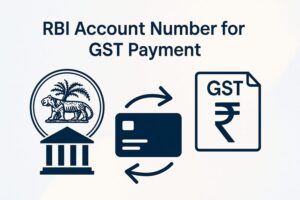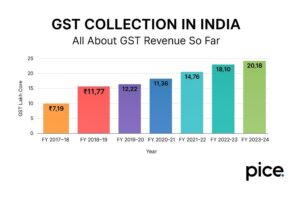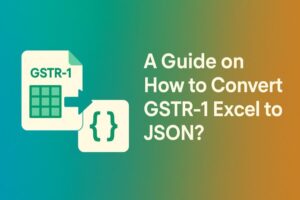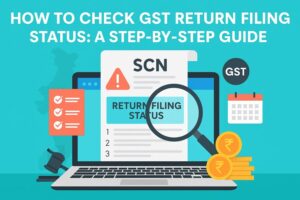Documents required for LLP GST Registration in India
- 22 May 25
- 8 mins
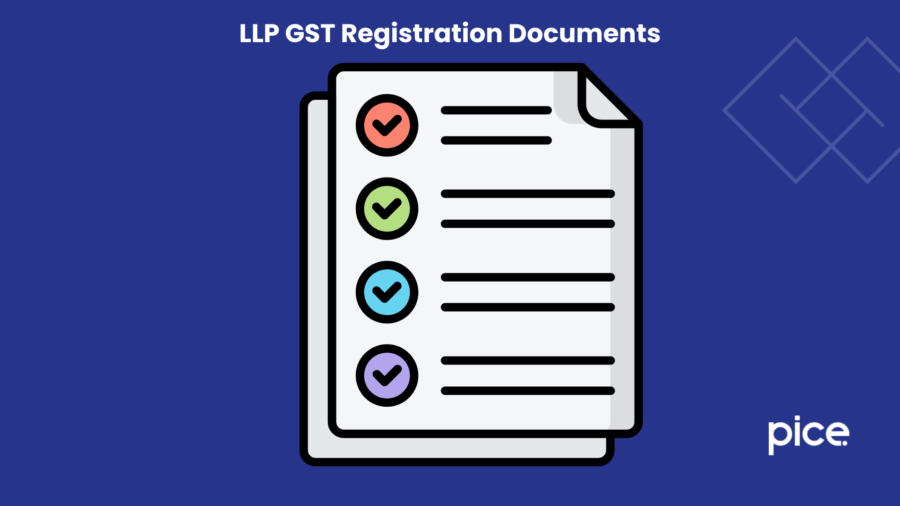
Documents required for LLP GST Registration in India
Key Takeaways
- LLPs must register for GST if turnover exceeds ₹20L (₹10L in special states).
- GST is mandatory for interstate trade and e-commerce LLPs.
- Proper documents like PAN, LLP agreement, and address proof are required.
- Online GST registration takes 7–10 days with no govt. fee.
- LLPs must file regular GST returns and maintain records.
Businesses in India need to follow specific rules and regulations while conducting operations and complying with the relevant tax regime. Our country is home to a range of companies and enterprises, including Limited Liability Partnerships (LLPs), Public Limited Companies, Private Limited Companies, Sole Proprietorships, and Partnership Firms.
LLPs, in particular, stand out. This is owing to their being hybrid structures that combine the flexibility of partnerships with limited liability feature companies. This makes them ideal for small businesses and professionals who are seeking legal protection while also aiming for seamless operations.
GST registration LLPs are not necessarily required. Partners shall be required, however, to register under GST if the LLP is registered. This depends on a number of factors, including annual turnover, among other circumstances.
This blog shall discuss the eligibility of LLPs for GST registration, documents required for LLP GST registration, and more.
GST Registration Eligibility for LLPs
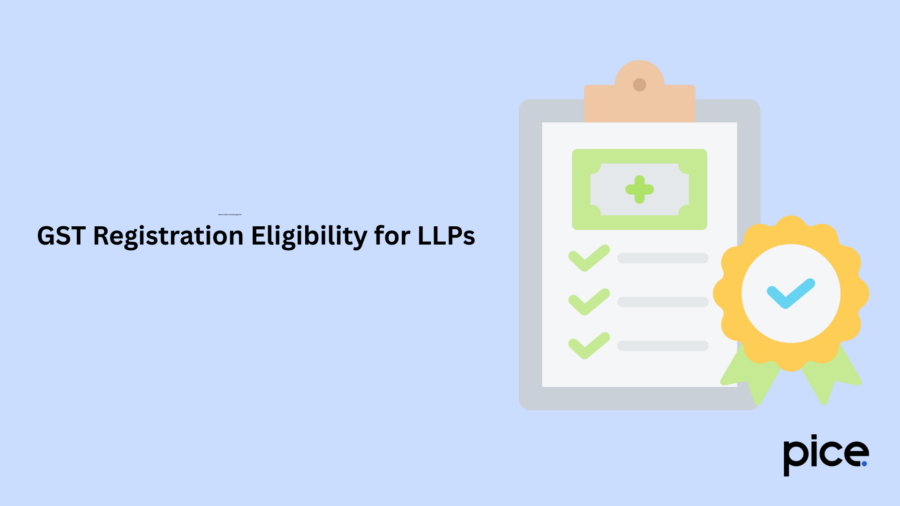
Here is a comprehensive list of eligibility criteria for LLPs to register for GST:
1. Annual Turnover:
- General Threshold: Exceeding ₹20 lakhs
- Special Category States (like in the North-Eastern part of India): Exceeding ₹10 lakhs
2. Interstate Supply:
LLPs involved in supplying goods or services across state borders must register for GST. This requirement applies regardless of the LLP’s turnover. The initiative shall ensure that interstate transactions are taxed properly.
3. E-commerce Operators:
LLPs that supply goods/services via e-commerce platforms like Flipkart, Amazon, or other online marketplaces must register under GST. This requirement applies regardless of the state of their turnover.
4. Reverse Charge Mechanism:
Considering the LLP has to pay tax under the reverse charge mechanism, it is required to register under GST in India.
5. Casual Taxable Person:
If the LLPs undertake goods/services supply across taxable territories, where they are not entitled to a fixed ‘place of business’, they must register as ‘casual taxable persons’.
6. Non-Resident Taxable Person:
If the LLPs are based out of India but supply goods and/or services in India, they must register as ‘non-resident taxable persons’.
7. Input Service Distributor (ISD):
If LLPs distribute the GST credit that has been paid on services among their various branches bearing different GSTINs, they must register as ISDs.
8. Voluntary Registration:
LLPs may voluntarily opt for GST registration even when they do not meet the criteria mentioned above. This initiative will benefit claiming input in the future.
Documentation Required for GST Registration
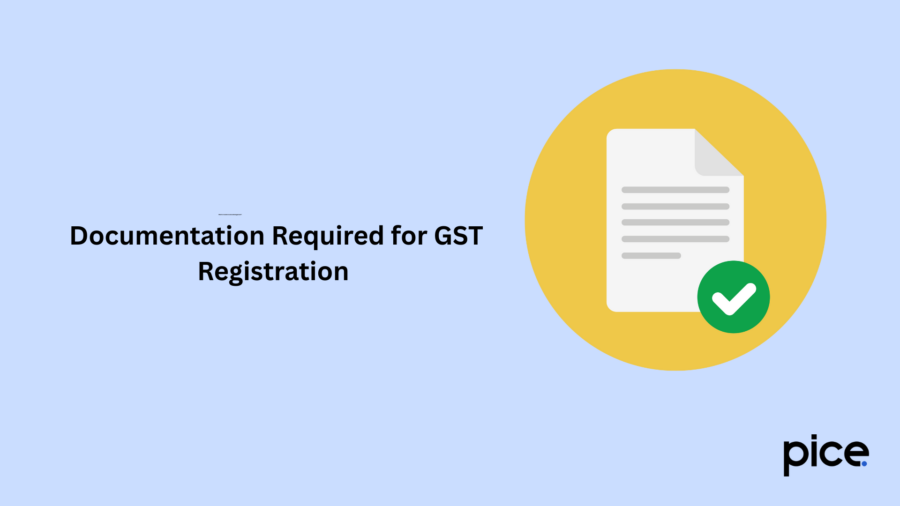
A Limited Liability Partnership will be required to provide a few essential documents to ensure seamless compliance and smooth legal operations. The table below lists the LLP GST registration documents required:
| Type of Document | About |
| LLP’s PAN Card | The valid PAN card that was issued in the name of the LLP in question |
| PAN Card of Designated Partners | PAN cards of all the designated partners of the LLP |
| Photographs of Designated Partners | Recent versions of the passport-sized photos of all designated partners |
| LLP Agreement | The partnership deed/agreement highlighting the LLP’s partnership structure/terms |
| Certificate of Incorporation | Proof of the LLP’s registered nature with the MCA (Ministry of Corporate Affairs) |
| Registration Certificate | LLP’s registration certificate copy as issued by the RoC (Registrar of Companies) |
| Identity Proof of Partners | PAN card/ Aadhaar/ passport of all designated partners to establish their identity |
| Business Address Proof | Utility bills including water, electricity, and landline bills of the registered office |
| Ownership Document or Khata | Legal ownership documents/municipal khata for the owned properties |
| Rent Agreement and NOC | Rent agreement and NOC (No Objection Certificate) from the owner of the rented premises |
| Bank Account Details | Bank account statement/ cancelled cheque/ the first page of the LLP’s passbook |
| Board’s Resolution | A board resolution copy (if applicable, for certain business decisions/compliance needs) |
Online Process for GST Registration of LLPs
Here are the steps to complete the online GST registration process for LLPs:
Step 1: Visit the GST Portal to initiate the registration process for the LLP.
Step 2: Next, you must create an account. Register your account by entering details like the LLP’s mobile number and official email ID. Make sure that the contact details you provide are active, as they will be referred to for verification purposes.
Step 3: You can then fill out the GST Registration application form, i.e., the GST REG-01. Put in all the required details about the respective LLP. This shall include your firm’s name, type of business, PAN, and information about the company partners.
Step 4: Proceed to upload all the prompted documents. The above section specifies the documents required to complete the registration process.
Step 5: Wait for the verification procedure to be conducted by the appropriate GST Authorities. They will review and then verify the submitted details/documents. Once their accuracy is cross-checked, you shall receive a notification that will resolve any potential discrepancies.
Step 6: The unique GSTIN will be issued. This newly assigned unique Goods and Services Tax Identification Number (GSTIN) will prompt compliance with GST regulations on the LLP’s behalf. The GSTIN for LLP shall allow for the tracking of the GST compliance status in the case of business registration.
GST Registration Fees and Timelines

Here is an overview of the fees and timelines associated with GST registration:
- Timelines: The GST registration process typically takes 7-10 working days. This is the relevant timeline, considering all the provided documents are in order. Plus, there should not be any errors in the application.
- Fees: No government charges apply for successful GST registration. However, professional fees apply if one seeks the assistance of tax consultants or chartered accountants to complete the GST registration process.
Unique Considerations for LLPs in GST Compliance
Here are some unique considerations for LLPs in the context of GST compliance requirements:
- Regularly Filing GST Returns: LLPs are required to file an annual return as well as monthly/quarterly returns.
- Maintenance of Records: Accurate records of all LLP transactions should be maintained for at least 6 years.
- Reverse Charge Mechanism: LLPs must account for GST as per the reverse charge mechanism (whenever applicable).
- Input Tax Credit (ITC): Appropriate documentation is a given. Timely filing must also be prioritised as it is essential to avail of ITC benefits.
GST Returns Filing for LLPs
Here are the GST returns that need to be filed by the LLPs:
| Type of Return | Frequency of Filing | Due Date of Submission | Details of the Return |
| GSTR-1 | Monthly/Quarterly | 11th of the following month/quarter | Information about the outward supplies of goods/services |
| GSTR-3B | Monthly | 20th of the upcoming month | Summary return listing the details of purchases, sales, tax liability and ITC |
| GSTR-4 | Annually | 30th April of the following financial year | For the composition scheme taxpayers |
| GSTR-9 | Annually | 31st December of the following financial year | An annual return listing the comprehensive details regarding the entirety of the financial year |
Conclusion
The GST registration process is essential for LLPs, considering how it ensures legal compliance. Additionally, LLPs benefit significantly from the smooth flow of tax credits. Thus, a grasp of the eligibility criteria, documents required for LLP GST registration, and the registration process are all of great value. It allows LLPs to properly navigate the entirety of the registration process.
Maintaining compliance with GST laws on a regulated basis is crucial. Prioritise timely return filings and the maintenance of accurate records, as both are important checkpoints on the path to seamless operations of LLPs under the GST regime in India.
💡If you want to streamline your invoices and make payments via credit or debit card or UPI, consider using the PICE App. Explore the PICE App today and take your business to new heights.
 By
By 







